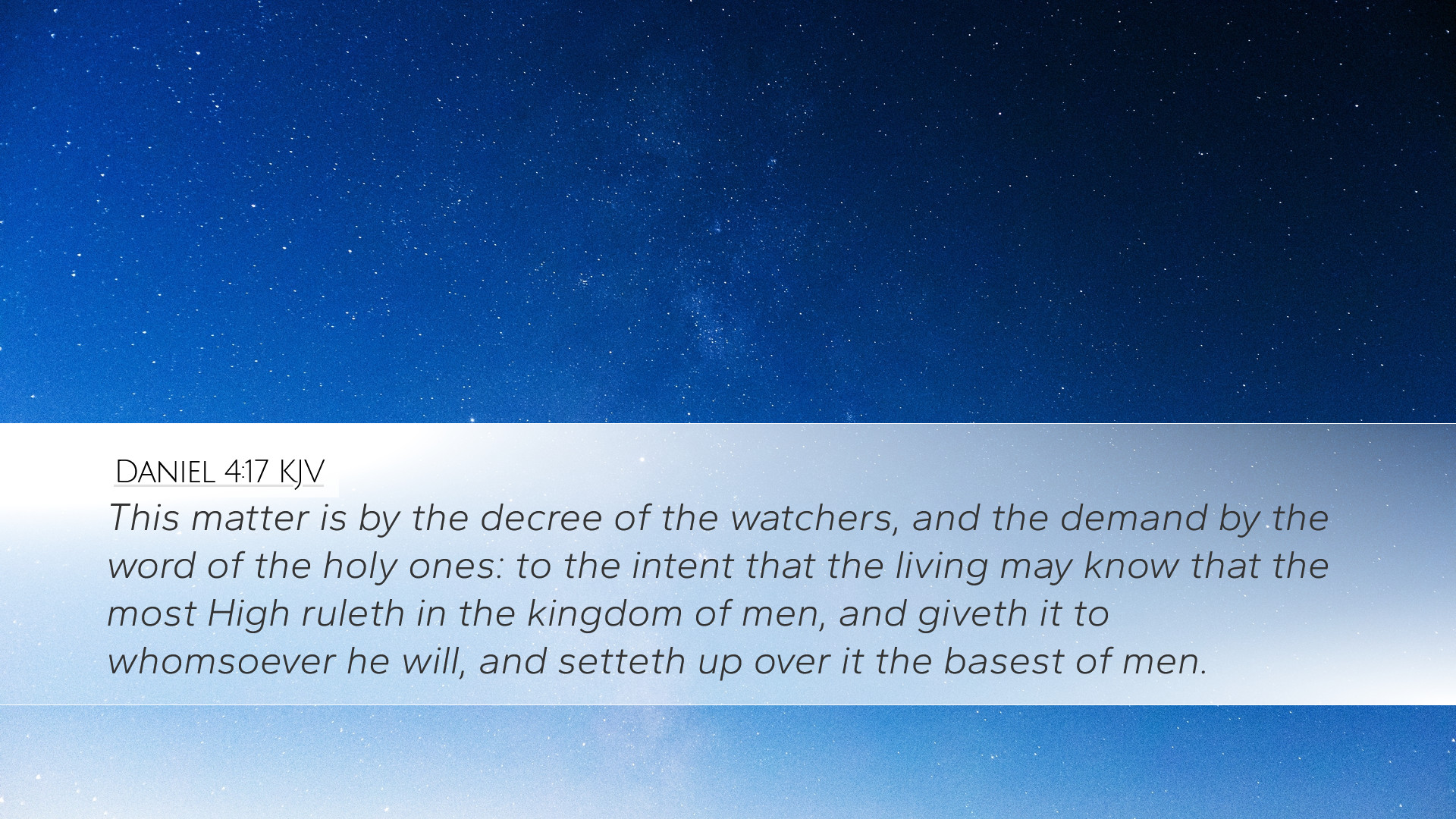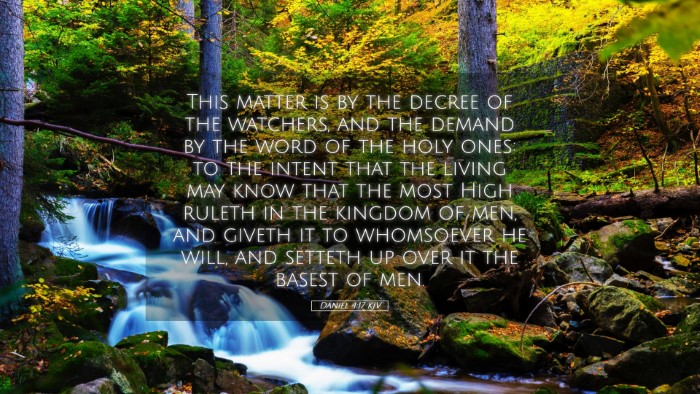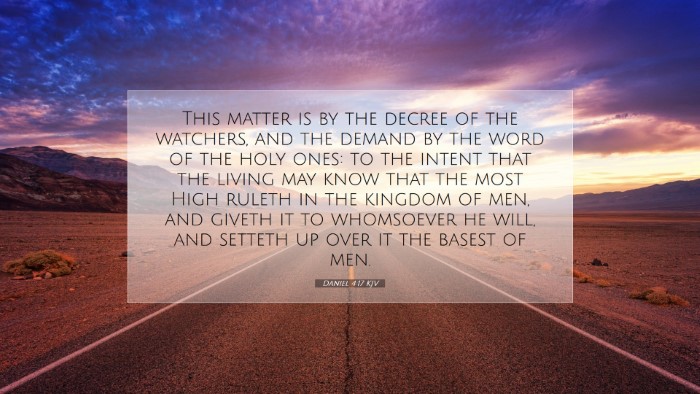Commentary on Daniel 4:17
Verse Context: Daniel 4:17 states, "This matter is by the decree of the watchers, and the demand by the word of the holy ones: to the intent that the living may know that the most High ruleth in the kingdom of men, and giveth it to whomsoever he will, and setteth up over it the basest of men." This verse is profound as it encapsulates the theological and sovereign principles regarding God's ultimate authority over earthly kingdoms.
Overview of the Sovereignty of God
Matthew Henry's Insight: Matthew Henry discusses the nature of God's sovereignty, emphasizing that all earthly rules and reigns are under the divine decree. He elaborates on how God can raise up one and put down another; no matter how mighty a ruler appears, they remain under divine control. The "watchers" signify celestial beings, indicating that the governance of the world involves the heavenly realm's active participation.
Albert Barnes' Reflection: Albert Barnes expands this idea by interpreting the "watchers" as angels responsible for the oversight of nations. He notes that this verse provides assurance amidst chaos, showcasing that human history is not abandoned but rather governed by divine providence. Barnes highlights that the "holy ones" refer to those who execute God's will, proclaiming His authority over the temporal affairs of mankind.
The Role of Angels in God's Decree
Adam Clarke's Commentary: Adam Clarke explains the function of angels within this decree, illustrating that their role is to announce God’s judgments. Clarke mentions the importance of understanding the hierarchy in heaven, where angels serve God's intentions regarding these earthly matters. This heavenly bureaucratic structure underscores the seriousness of the message being declared; it is not merely a suggestion but a divine pronouncement affecting kingdoms.
Theological Implications
God's Direct Rule: The declaration highlights God's omnipotence and omniscience. By allowing the basest of men to reign, He demonstrates that human wisdom and strength are not what governs success. This drives home the principle that God often uses the weak and foolish to confound the wise, as seen in the case of Nebuchadnezzar himself, who faces a humbling experience.
- Divine Purpose: This verse teaches that God's purposes might encompass punishment and grace. The intent "that the living may know" indicates that God's actions serve to reveal His character and authority, instructing humanity in reverence and awe of His sovereignty.
- Judgment and Mercy: The juxtaposition of judgment upon Nebuchadnezzar with the potential for restoration signifies God's mercy in His governance. Though He sets one up, He can also bring another low, revealing His character as both just and merciful.
Application for Believers
For pastors and theologians, this verse serves as a reminder of the importance of acknowledging God's reign in both personal and communal prayer, living in a state of humility. In times of uncertainty, believers are called to rest in the knowledge of God's ultimate control and plan.
Matthew Henry's Exhortation: Henry advises believers to avoid despair in the face of political upheaval, trusting that God is actively involved in distributing authority across nations as per His wisdom. His sovereignty assures believers that injustices, although prevalent, are part of a greater divine story.
Barnes Encourages Reflection: Barnes urges Christians to reflect on God's governance in their lives. When believers face struggles, they should remember that God may be using their circumstances for their growth, even if it seems perplexing at the moment.
The Nature of True Leadership
Lessons for Leaders: This verse prompts discussions around the nature of leadership and power. Understanding that God can elevate or demote leaders challenges the notion of human entitlement to authority. Leaders should practice humility, recognizing that their position is a trust from God and a responsibility to others.
- Application Point: Christian leaders, in particular, should align their leadership with Christian principles of service and sacrifice, reflecting the character of Christ rather than seeking power for personal gain.
Conclusion
Daniel 4:17 serves as a crucial reminder of God's complete sovereignty and involvement in human history. The insights drawn from public domain commentaries emphasize the unshakeable truth that no earthly kingdom exists without His conscious decree. This reinforces the call for believers to live with humility and confidence in the supreme authority of God over all. As one studies this passage, it beckons a spirit of worship and reverence toward the Almighty, fostering an awareness that His plans, while sometimes inscrutable, are ultimately for the good of those who trust in Him.


